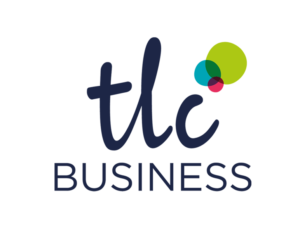5 World Cup marketing campaigns that caught our attention
Just under two weeks into the World Cup and there has already been many surprising results. The England team have won their first two tournament games, against Tunisia and Panama, with 18 million people tuning in to watch their 2-1 victory and 6 -1 win. Russia has managed to prove their pre-tournament critics wrong, winning their first two games against Saudi Arabia and Egypt, giving them the best start any hosting country has ever had. Finally, as we were finishing this post, Germany went out in the group stages! However, with many companies jumping on the World Cup bandwagon with their marketing campaigns, it seems the matches haven’t been the only thing catching the audience’s attention. As one now expects, when the World Cup rolls around every four years, businesses large and small look to capitalise on the event in ever new and creative marketing campaigns. So let’s take a look at some of the biggest campaigns that have dominated this year’s competition so far.
- Interactive Budweiser Campaign
One of the biggest global campaigns to be unveiled was by Budweiser, who is the official beer of the World Cup. Unsurprisingly, they released a series of short video advertisement’s to be featured on TV. However, they have also taken the opportunity to target a younger demographic with their marketing by partnering up with the social media platform Snapchat. It came with its risks, since Snapchat’s age policy is 13 and upwards, meaning they had to be careful they weren’t encouraging underage drinking. The brand said they were confident their campaign didn’t reach under an under-18s audience, but this remains to be seen. Underage drinking aside! The innovative campaign launched the first sound activated Snapchat Lens, designed to respond to the sounds of frenzied football fans. In addition to this, Budweiser is also releasing a ‘Snappable’ lens which is a new form of interactive technology that encourages users to share their experiences with friends through playing augmented reality games. Budweiser are establishing a reputation for embracing new technology in their marketing (who could forget their noise-activated beers cups), using it effectively to engage their target audience and generate a buzz.
- Nike VS. Adidas
With Nike and Adidas being two of the biggest sports brands in the world, it’s no surprise that they have spent huge sums of marketing budget battling for consumer attention during arguably the biggest sporting event in the world. In terms of video marketing, both brands released ads that were emotionally engaging and it seems Nike came out on top in that battle, by scoring a higher percentage of engagement amongst fans. However, with Nike and Adidas focused on each other, upcoming brands, such as New Balance, are gaining World Cup market share by adopting a different approach. With their biggest rivals allocating much of their marketing budgets to expensive sponsorship deals, New Balance has focused their strategy on engaging consumers through social media campaigns. During the World Cup, New Balance has successfully used social media influencers on YouTube to gain brand awareness and consumer mind-share.
- MasterCard Controversial Campaign
MasterCard’s recent World Cup social media campaign, entitled ‘Goals that change lives’, made waves for the wrong reasons when they experienced a Twitter backlash. The insensitive campaign drew criticism across the board with users describing it as ‘’easily the worst marketing I’ve ever seen’’. The crux of the campaign centred around the company’s promise to give 10,000 children a meal for every goal scored by Messi or Neymar, inspired by the drive to eliminate world hunger. Predictably, the campaign provoked a wave of verified Twitter users criticising the campaign, arguing it was a cruel proposition and ‘’why not give them the meals anyway?’’ Although the football players were proud to be a part of helping change people’s lives, many argued it was the wrong type of issue to include in a World Cup marketing campaign and management should have realised before going forward with it. Since the recent uproar on Twitter, MasterCard has decided to discontinue their campaign and instead adopted a target to donate 1 million meals by the end of the year.
- Paddy Power Pledge
In a similar, but more well-received campaign, Paddy Power has offered to donate £10,000 to LGBT charities for every goal scored by Russia as part of their campaign. As with many of the World Cup marketing campaigns, this one is being backed by celebrities, including Caitlyn Jenner, Danni Wyatt and Gareth Thomas. With Russia unexpectedly winning both of their first matches and scoring a total of 8 goals in the process, Paddy Power has already donated £80,000. With home advantage and momentum on their side, you’d bet Russia has still got more goals in them.
- Coca-Cola
No global sporting event of the magnitude of the World Cup would be complete without the drinks giant Coca-Cola getting in on the marketing campaign act. This year is no different, with Coca-Cola launching a series of video ads soundtracked by Jason Derulo and AC/DC and a set of limited-edition numbered cans so you can make your match score predictions. The third of their ads takes an innovative approach and employers virtual animations of players from the FIFA 2018 game. A pre-release version was launched in Time Square earlier in the year on what was hailed as the ‘’first 3D electro – Kinetic Billboard’’ in the world. The ad is part of a strategy to appeal to a younger demographic, in which they have also teamed up with EA Sports FIFA 2018.
We hope this has given you some inspiration for your marketing this World Cup and don’t forget to let us know your favourite World Cup-themed marketing campaigns!
